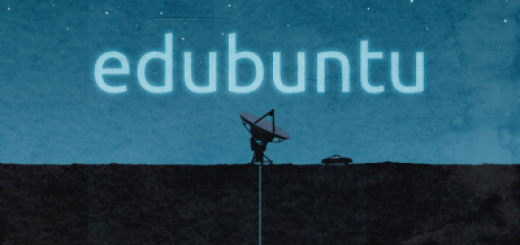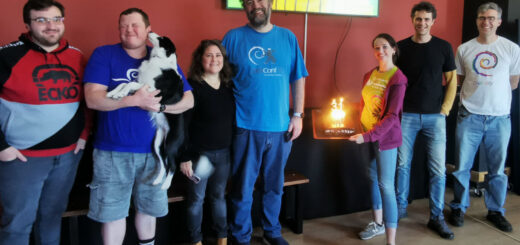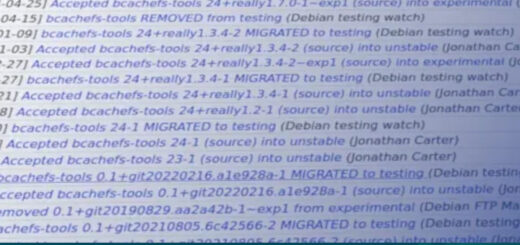Debian project leader elections 2019
A few weeks ago, after a few days of internal turmoil on the matter, I committed to running for DPL.
The original nomination period was the week before, with no one stepping up for the position and with our current leader indicating that he wouldn’t be available to serve another term. This resulted in a bit of a knee-jerk reaction and slight panic, with threads popping up on the debian mailing lists pondering things like what a leaderless Debian would look like and whether we perhaps need more of a team than a single person to be the leader the project. There was also some discussion about burnout and whether it’s even fair to put so much pressure on a single person, and whether it’s possible to delegate more of the DPL’s responsibilities. The press also picked up on this and there were a few big stories on the matter that lead some to be slightly nervous on the matter.
Of course (as the LWN article pointed out), Debian’s constitution is quite thorough and has made provision for cases like these. If no one steps up, the nomination period is extended for another week, and it only took one such extension to produce 5 new candidates (of which one retracted soon afterwards due to time commitments).
I mentioned internal turmoil at the beginning of the post, this was because up until a few days before my self-nomination, I’ve been very confident, and consistently so for a very long time, that I never want to run for DPL. The work that I care about and spend most attention on doesn’t at all require me being a DPL. Also, having more responsibility in areas that I’d rather let others take care of sounded a bit daunting. I’d much rather spend time on technical and more general community issues than very specific interpersonal problems or administrative tasks like reading and approving budget proposals, sending out developer certificates, etc. On top of that, I was aware that running for DPL and opening myself like that means that I open myself to a very wide array of critique, that people might put everything I say under a microscope and try to tear it apart, and that running for DPL means being prepared for that.
Despite that turmoil, a small nagging part kept asking the questions “But what if?”, what if I were DPL, what would I do? What would I change? What would I do as DPL that would make Debian better, and better as a DPL than I just could as a normal debian developer? These questions helped form in my head what my platform would look like, why I wanted to run for DPL, and how the rest of my campaign would shaped up. This year is also unique for me compared to previous years in that I will actually have time over the next year to focus on DPL-like activities. That, combined with the plans that were shaping up that I’m very enthusiastic about, convinced me that it’s time to step up and proceed with my self-nomination.
Directly after the nomination period, the campaign period starts. There are surprisingly few rules (or even guidance) regarding the campaign period, the majority of it is where Debian developers (or anyone really, but mostly DDs) ask questions to the DPL candidates about their stance and policy on certain matters, how they plan to take action and often a few really tough hypothetical situations. Some questions even took advantage of the fact that April fools day falls in the campaign period, which led to some odd and interesting questions. Overall, I really enjoyed the campaign period. I was preparing myself for the worst case scenario before campaigning started, but what actually happened next astonished me. We had all kinds of Debian developers coming forward with high quality, productive discussions on all kinds of aspects which ranged from internal technical policies, how we work with upstreams, community matters, diversity, the DPL role itself, how Debian is changing and how to keep it relevant, community turnover, how we deal with money, how we market ourselves and so one. It was productive discussion and I enjoyed it.
Regardless of the outcome of this election, I’m very happy that I stepped up as a DPL candidate, and I’m very satisfied with how my campaign went and how I answered my questions. I’m also very happy that the elections turned out so vibrant and productive and I dare say even exciting. I hope that this will continue to happen for future elections, because it’s clear to me that a productive election period is good for the health of Debian.
In the future, someone may be reading this and ponder “Should I run for DPL?”. My advice would be to first take some stock and figure out if you’re at a place in your life where you can actually do that (Did you just start a new job? Would your employer support you? Did you recently get married, have kids? How’s your health? Can you afford to spend lots of unpaid time doing DPL work? etc…) and then also consider why you’d want to be DPL and what you’d like to achieve with such a role. If you weigh up all the aspects and it still feels right for you, then by all means go for it. In my opinion, even if you’re not elected you still help make Debian better by participating in the election process.
Voting closes in around 12 hours at the time of writing this. Good luck to all the candidates and thank you to everyone who participated in making this such a fantastic and surreal experience!
2019-04-21: Update: Congratulations to Sam Hartman who is our new DPL! We’ve been talking off-list throughout the election process and Sam knows he has my full support and we even plan to collaborate on certain areas, more news to follow in the near future.








Inspiring read. Thank you for your dedicated work.